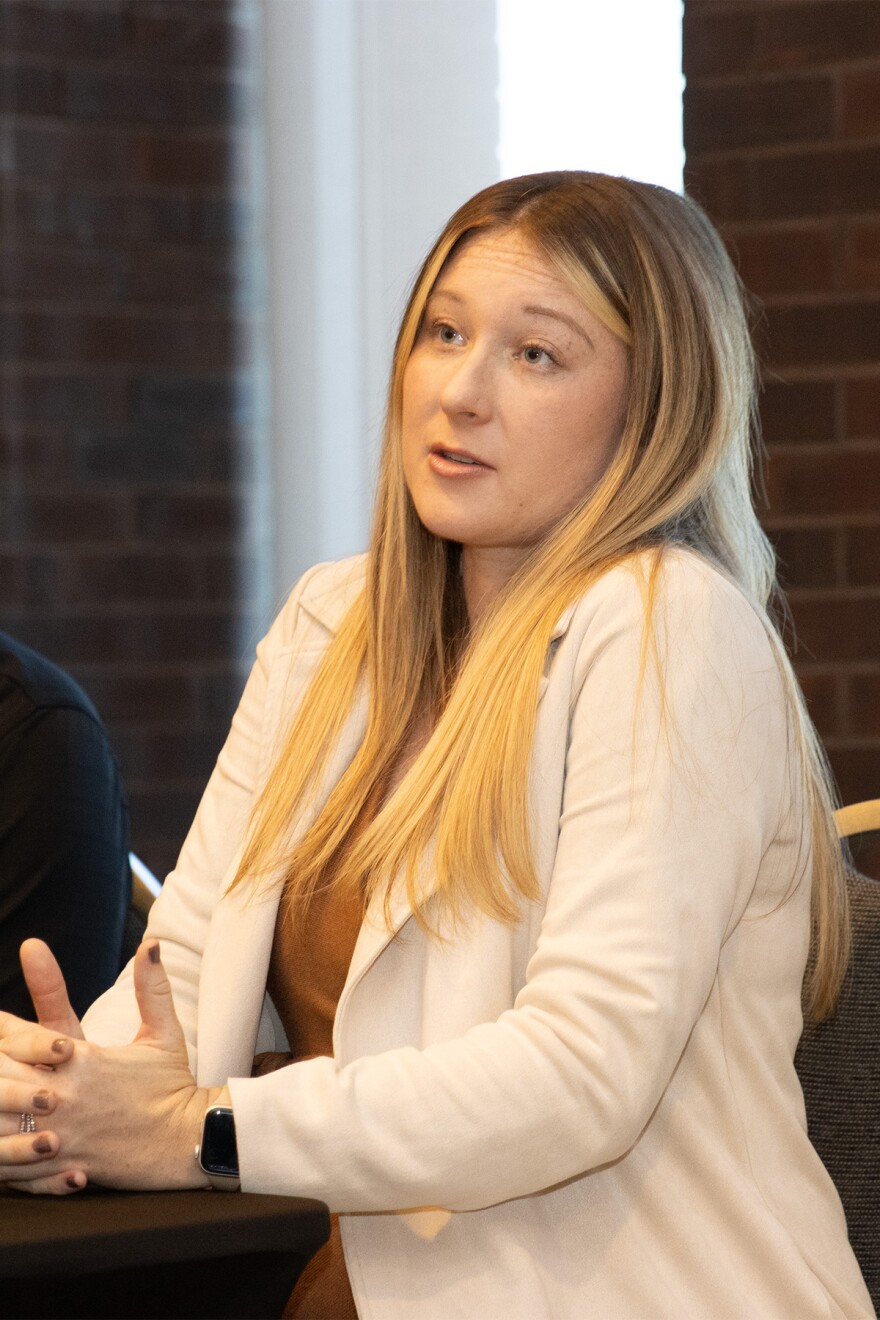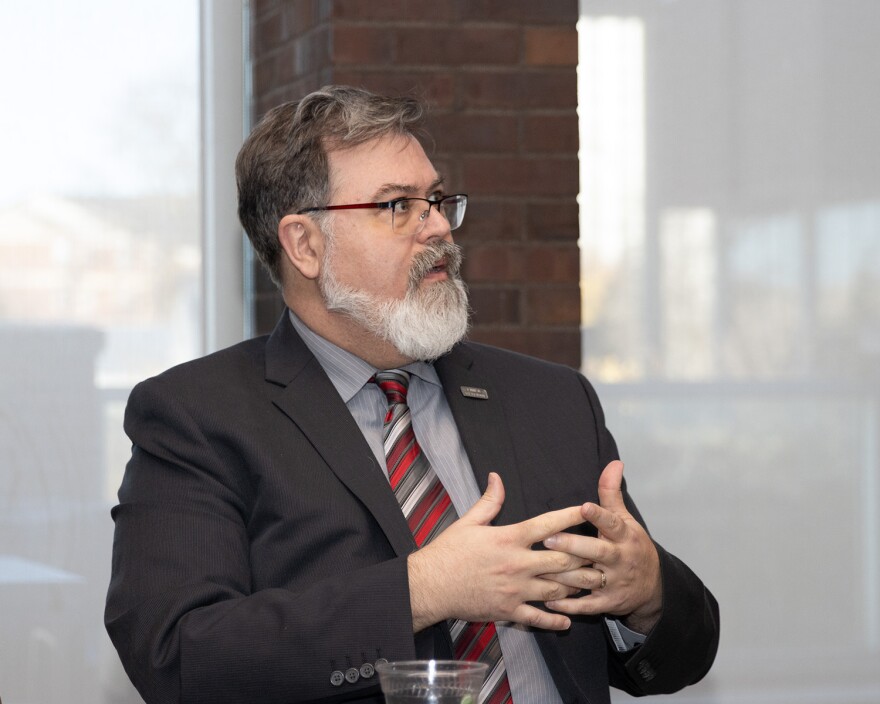Illinois State University’s Veterans Day group discusses mental health
As part of its annual Veterans Day celebration, Illinois State University hosted a discussion Monday, focusing on the effects of mental health on those who serve in the military.
Members of the panel, which gathered in the Prairie Room in the Fourth Student Center, included veterans, immediate family members of veterans, ISU student veterans and ISU faculty familiar with military studies and of the mind.
Steve Krippel, professor of military science with the Defense Personnel Training Center [ROTC]introduced reporters and asked questions, many of which focused on mental health and suicidal values.
“It is estimated that 22 veterans commit suicide every day, or about 8,000 each year,” Krippel said.
ISU Counseling Services staff psychologist Alex Doup, who has researched suicide among veterans over the age of 50, says there are often a number of contributing factors.

“There may be a period or a similar adjustment [what] we see among people from the service and being prepared in different activities and identity again, “Doup said.”
Jess Ray, Normal Township Superintendent and retired ISU director of veterans and military services, spoke about suicide, with a particular focus on Vietnam veterans.
“One of the things I hear a lot of veterans say is, ‘That thing [help and/or counseling] it’s there for someone else — they need it more than me,” Ray said. “The culture, at least in my experience in the military, is that you suck it up, buttercup, and move on.”

Ray also served as an infantry sergeant in the Illinois State Army, noting that he saw veterans struggling to get help.
“Back in the day, if you asked for help, it could affect your security clearance or promotion chances,” Ray said. “I think the challenge is to get the information out to people so that they know there are tools, and then they follow through to figure out what to do to encourage people to take advantage of those tools.”
ISU psychology professor Eric Wesselmann offered ways to recognize signs of mental health problems among veterans.
“Social connection, or on the other hand, feelings of isolation – of isolation – seems to be a major indicator of post-traumatic stress disorder,” said Wesselmann, adding that another way Citizens can make a difference by accepting the sacrifices that veterans have. create intimacy.
Ray expressed appreciation for the people in Bloomington-Twaelo who made a difference.
Ray said: “We have people who go there who are really trying to make a difference in the community. “They let us know, those of us who have served, even if they don’t understand it, that we really care.
Former representative, Lt. Col. Eric Murray shared the kinds of conversations veterans enjoy with citizens about their experiences.
“Asking a simple question, ‘Tell me a funny story about themselves,’ because that’s what they want to do is share how they lived,” Murray said. “That’s the best way to capture their character.”
#Illinois #State #Universitys #Veterans #Day #group #discusses #mental #health
